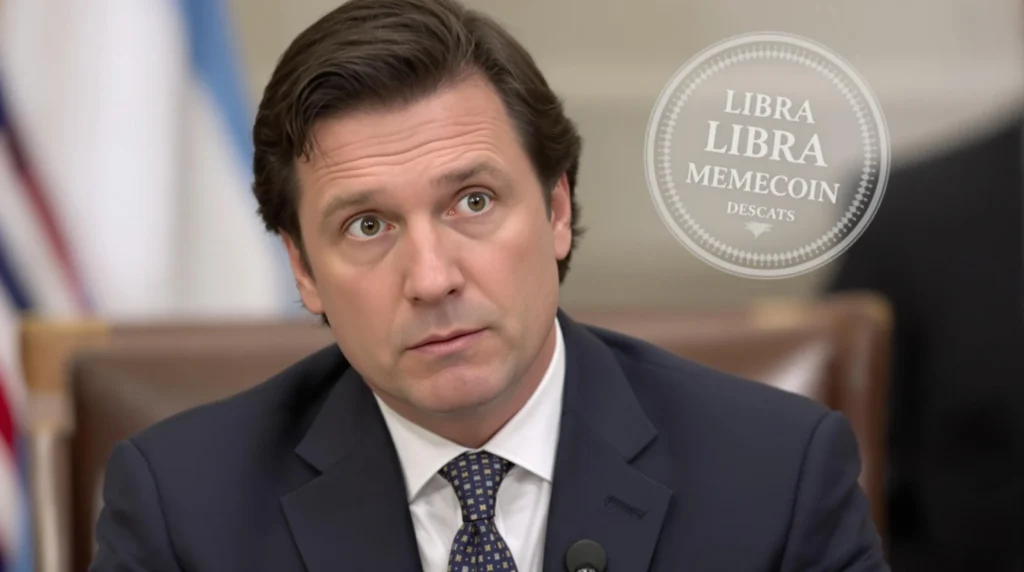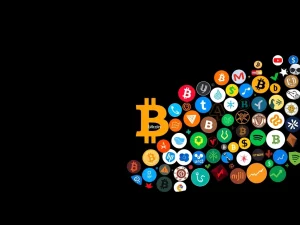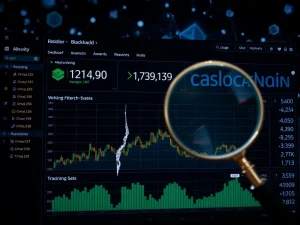Scandalous Denial: Javier Milei Refutes Promoting Failed LIBRA Memecoin Amid Fraud Allegations

The cryptocurrency world is buzzing as Argentine President Javier Milei finds himself in the crosshairs of fraud allegations, accused of promoting the now-infamous LIBRA memecoin. But has Milei truly endorsed this digital asset, or is he caught in a web of misinterpretation and legal battles? Let’s dive into the unfolding drama and uncover the truth behind the claims.
Javier Milei’s Stance on LIBRA Memecoin: Promotion or Spreading the Word?
Amidst mounting pressure from fraud lawsuits, Javier Milei has vehemently denied ever “promoting” the LIBRA token. Instead, the Argentine President argues that his involvement was limited to simply “spreading the word” about the memecoin. This subtle yet significant distinction is at the heart of the controversy. But what exactly does Milei mean by ‘spreading the word,’ and how does it differ from active promotion?
According to Milei’s defense, sharing information about a cryptocurrency, especially in the volatile and often speculative world of memecoins, does not equate to endorsing or advocating for its purchase. He suggests his actions were merely informational, perhaps aimed at raising awareness or sparking discussion around digital currencies within Argentina. However, those filing lawsuits paint a different picture, alleging that Milei’s actions went beyond simple information sharing and constituted promotional activities that ultimately led to financial losses for investors.
The Allegations of Crypto Fraud and Milei’s Involvement
The core of the issue lies in the accusations of crypto fraud surrounding the LIBRA memecoin. Like many memecoins, LIBRA likely experienced a surge of initial hype, fueled by social media and online communities, before potentially crashing in value, leaving investors with significant losses. Fraud lawsuits often emerge in such scenarios, targeting not just the creators of the cryptocurrency but also individuals perceived to have amplified its reach and legitimacy.
In this context, Javier Milei’s public statements or mentions of LIBRA are being scrutinized. Did his words, even if intended as ‘spreading the word,’ carry enough weight and influence to be interpreted as an endorsement? This is the crucial question at the center of the legal challenges. The plaintiffs argue that Milei’s position as a prominent political figure, even before becoming president, lent credibility to the memecoin, encouraging individuals to invest based on his perceived support.
Understanding the Risks of Memecoin Investments
This controversy highlights the inherent risks associated with memecoin investments. Memecoins, often inspired by internet memes and viral trends, are typically characterized by:
- High Volatility: Their prices can fluctuate wildly in short periods, driven by social media sentiment and hype rather than fundamental value.
- Lack of Utility: Many memecoins lack real-world applications or underlying technology, making them purely speculative assets.
- Pump-and-Dump Schemes: The rapid price appreciation can attract malicious actors who orchestrate pump-and-dump schemes, leaving late investors holding worthless tokens.
- Community-Driven Value: Their value is largely dependent on community interest and online buzz, which can be fleeting and unpredictable.
The LIBRA memecoin saga serves as a cautionary tale, reminding investors to exercise extreme caution and conduct thorough research before investing in any cryptocurrency, especially those categorized as memecoins. The promise of quick riches can often lead to significant financial losses in this highly speculative market.
Argentina Crypto Landscape and Milei’s Policies
It’s important to consider this situation within the broader context of the Argentina crypto landscape and Javier Milei’s economic policies. Argentina has been grappling with economic instability and high inflation, leading many citizens to explore cryptocurrencies as alternative stores of value. Milei, known for his libertarian and pro-market stance, has generally expressed favorable views towards Bitcoin and digital currencies.
However, this incident with the LIBRA memecoin raises questions about the potential for misuse and misinterpretation of endorsements, even unintentional ones, in the crypto space. As governments and public figures navigate the evolving world of digital assets, clear communication and responsible engagement are crucial to protect investors and maintain trust in the burgeoning crypto ecosystem.
The Broader Implications of the Memecoin Scandal
The allegations against Javier Milei and the LIBRA memecoin controversy extend beyond just one individual and one cryptocurrency. This situation has broader implications for:
- Celebrity and Influencer Endorsements: It underscores the need for greater scrutiny and regulation of celebrity and influencer endorsements of financial products, including cryptocurrencies.
- Investor Education: It emphasizes the critical importance of investor education, particularly in the high-risk realm of memecoins and speculative crypto assets.
- Regulatory Clarity: It highlights the ongoing need for clearer regulatory frameworks around cryptocurrency promotions and investor protection in the digital asset space.
- Due Diligence: It serves as a reminder for individuals to conduct thorough due diligence and not rely solely on endorsements or hype when making investment decisions.
As the legal proceedings unfold, the crypto community and observers worldwide will be closely watching how this case progresses. The outcome could set precedents for future cases involving cryptocurrency endorsements and the responsibilities of public figures in the digital asset arena.
Conclusion: Navigating the Murky Waters of Memecoin Promotion
The Javier Milei and LIBRA memecoin saga is a complex situation involving allegations of crypto fraud, denials of promotion, and the inherent risks of memecoin investments. Whether Milei’s actions constitute promotion or merely ‘spreading the word’ will likely be debated in legal proceedings. Regardless of the legal outcome, this case serves as a stark reminder of the volatility and potential pitfalls within the cryptocurrency market, particularly when it comes to speculative assets like memecoins. Investors are urged to exercise caution, conduct thorough research, and understand the risks before venturing into the exciting but often treacherous world of digital currencies. The line between information sharing and promotion in the crypto space remains blurry, and this case underscores the need for greater clarity and responsible engagement from public figures and influencers alike.









